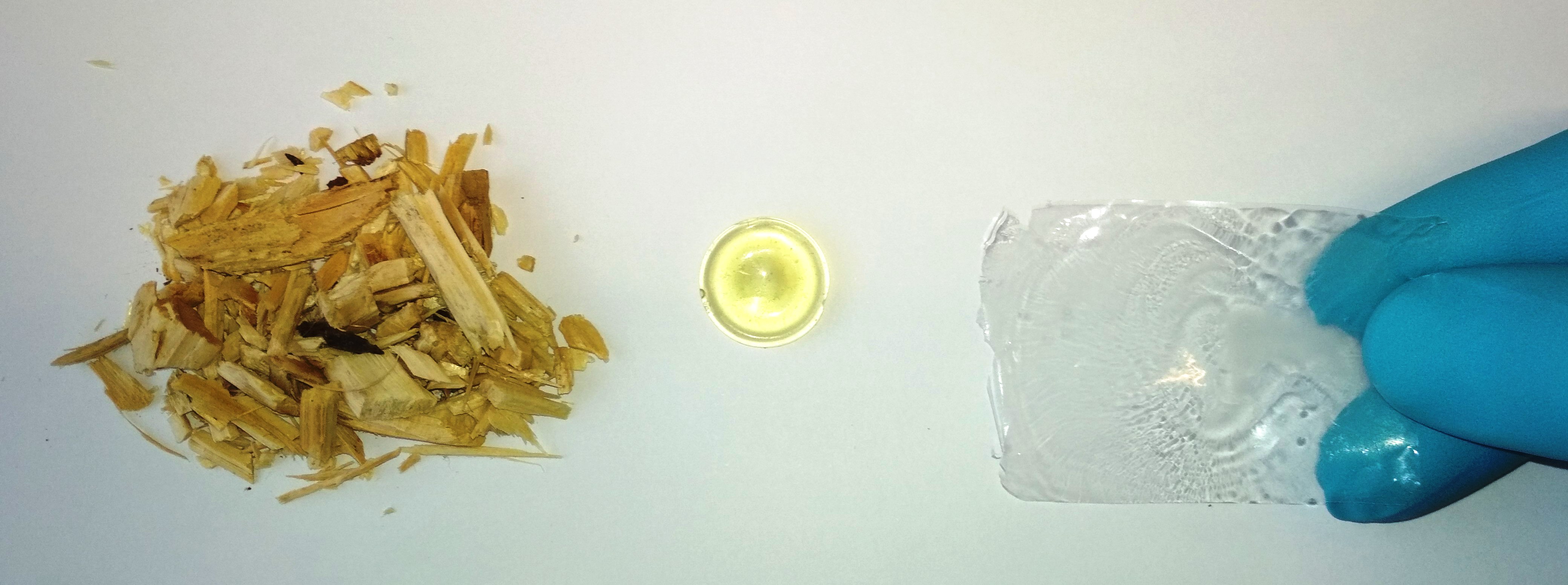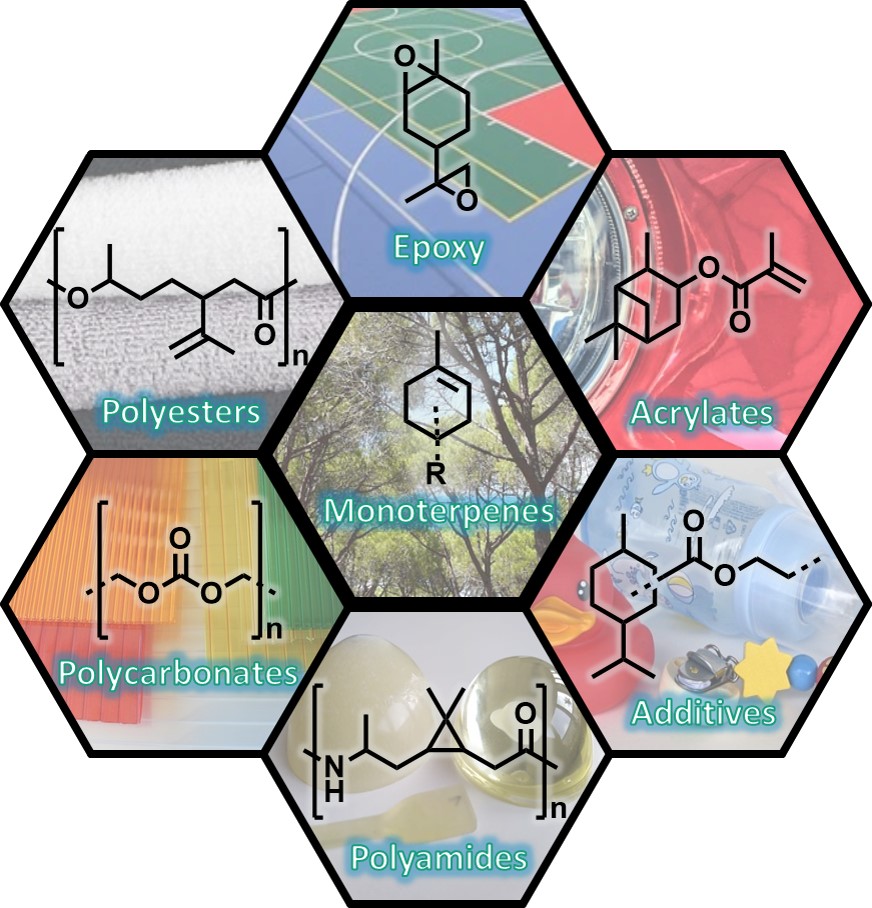The term biobased polymers includes naturally occurring polymers such as cellulose, lignin, starch, chemically obtained derivatives such as cellulose acetate, and polymers of biobased monomers such as polyamide 11 (PA11), which is produced from 11-aminoundecanoic acid gained from castor oil pressed from castor beans. If monomers already known from petrochemistry, e.g. diethylene glycol for polyethylene terephthalate (PET), are obtained from renewable resources they are called drop-in monomers. The molecular structure and properties of the resulting plastics are exactly identical to their fossil-based counterparts. In addition, the various chemical structures of biogenic resources give way to the production of completely novel polymers with remarkable properties. At Fraunhofer IGB, Straubing branch, the development of innovative biobased polymers and additives is an important focus of research. The scope ranges from the chemical modification of polysaccharides, the controlled degradation of lignin and the conversion of biomolecules to special polymers to the production of biobased plasticizers and nucleating agents.
In the spotlight: Monoterpenes for plastic applications
Monoterpenes are biomolecules that are produced by a wide diversity of plants, microorganisms and fungi in an exceptional structural variety and can be obtained from industrial waste streams from the paper or the juice industry, for example. As they are convenient for chemical modification, contain only small amounts of heteroatoms, are of a suitable molecular size, and possess chemical structures resulting in special (polymer) properties, monoterpenes are considered as a promising raw material for biobased plastic applications. The chemical and enzymatical modification of naturally occurring monoterpenes to polymerizable monomers and (partly) biobased additives are intensively researched at the IGB Straubing site.
 Fraunhofer Institute for Interfacial Engineering and Biotechnology IGB
Fraunhofer Institute for Interfacial Engineering and Biotechnology IGB
